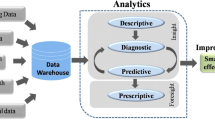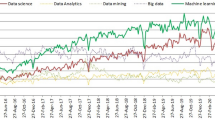Abstract
The concept of the meta-universe is still in its early stages, but many leading tech companies have invested heavily in research and development for this technology. The development of meta-smart cities is a significant trend. In the meta-universe environment, integrating information systems is crucial for analyzing AI big data. Establishing an integrated platform for medical information systems is key to advancing information technology. In the context of the meta-universe, creating an efficient and unified integration platform to eliminate medical information silos and reduce system integration costs has become a pressing issue in medical informatization. This paper proposes a medical information system integration method based on an integration platform and utilizing cloud computing technology as a data center. The core business layer uses the integration software “Ensemble” as the integration platform. The underlying data center employs a Hadoop storage cluster with distributed data storage and parallel computing technology, and the existing scheduling algorithm is studied and analyzed to enhance the resource scheduling algorithm for medical small file data. The effectiveness of the algorithm is simulated and verified on an experimental platform, demonstrating improved efficiency in resource scheduling.








Similar content being viewed by others
Data availability
The figures and tables used to support the findings of this study are included in the article.
References
Lee, U.K., Kim, H.: UTAUT in Metaverse: An Ifland case. J. Theoretical Appl. Electron. Commer. Res. 17(2), 613–635 (2022). https://doi.org/10.3390/jtaer17020032
Dahan, N.A., Al-Razgan, M., Al-Laith, A., Alsoufi, M.A., Al-Asaly, M.S., Alfakih, T.: Metaverse framework: A case study on E-learning environment (ELEM). Electronics. 11(10), 1616 (2022). https://doi.org/10.3390/electronics11101616
Al-Yadumi, S., Xion, T.E., Wei, S.G.W., Boursier, P.: Review on integrating geospatial big datasets and open research issues. IEEE Access. 9, 10604–10620 (2021). https://doi.org/10.1109/ACCESS.2021.3051084
Cudré-Mauroux, P.: Leveraging knowledge graphs for big data integration: The XI pipeline. Semantic Web. 11(1), 13–17 (2020)
Wang, C., Qin, F.: Comput. Commun. 151, 548–555 (2020). https://doi.org/10.1016/j.comcom.2019.11.028 Cloud assisted big data information retrieval system for critical data supervision in disaster regions
Cheng, Y., Zhou, K., Wang, J., Yan, J.: Big earth observation data integration in remote sensing based on a distributed spatial framework. Remote Sens. 12(6), 972 (2020). https://doi.org/10.3390/rs12060972
Almasoud, A., Al-Khalifa, H., Al-salman, A., Lytras, M.: A Framework for Enhancing Big Data Integration in Biological Domain using distributed Processing. Appl. Sci. 10(20), 7092 (2020). https://doi.org/10.3390/app10207092
Park, S.M., Kim, Y.G.: A metaverse: Taxonomy, components, applications, and open challenges. IEEE Access. 10, 4209–4251 (2022). https://doi.org/10.1109/ACCESS.2021.3140175
Park, S., Kim, S.: Identifying world types to deliver gameful experiences for sustainable learning in the metaverse. Sustainability. 14(3), 1361 (2022). https://doi.org/10.3390/su14031361
Suh, W., Ahn, S.: Utilizing the metaverse for learner-centered constructivist education in the post-pandemic era: An analysis of elementary school students. J. Intell. 10(1), 17 (2022). https://doi.org/10.3390/jintelligence10010017
Zyda, M.: Building a human-intelligent metaverse. Computer. 55(9), 120–128 (2022). https://doi.org/10.1109/MC.2022.3182035
Shin, D.: The actualization of meta affordances: Conceptualizing affordance actualization in the metaverse games. Comput. Hum. Behav. 133, 107292 (2022). https://doi.org/10.1016/j.chb.2022.107292
Pamucar, D., Deveci, M., Gokasar, I., Tavana, M., Köppen, M.: A metaverse assessment model for sustainable transportation using ordinal priority approach and Aczel-Alsina norms. Technol. Forecast. Soc. Chang. 182, 121778 (2022). https://doi.org/10.1016/j.techfore.2022.121778
Ge, J., Wang, F., Sun, H., Fu, L., Sun, M.: Research on the maturity of big data management capability of intelligent manufacturing enterprise. Syst. Res. Behav. Sci. 37(4), 646–662 (2020). https://doi.org/10.1002/sres.2707
Pauleen, D.J., Rooney, D., Intezari, A.: Big data, little wisdom: Trouble brewing? Ethical implications for the information systems discipline. Social Epistemology. 31(4), 400–416 (2017). https://doi.org/10.1080/02691728.2016.1249436
Iqbal, R., Doctor, F., More, B., Mahmud, S., Yousuf, U.: Big data analytics: Computational intelligence techniques and application areas. Technol. Forecast. Soc. Chang. 153, 119253 (2020). https://doi.org/10.1016/j.techfore.2018.03.024
Iivari, J.: The IS core-VII: Towards information systems as a science of meta-artifacts. Commun. Association Inform. Syst. 12(1), 37 (2003). https://doi.org/10.17705/1CAIS.01237
Sethi, M., Anand, A., Gangopadhyay, D., Reddy, V., Gupta, M.: An open framework for federating integrated management model of distributed it environment. In NOMS 2008–2008 IEEE Network Operations and Management Symposium (pp. 803–806). IEEE. (2008)., April https://doi.org/10.1109/NOMS.2008.4575218
Link, S.: Charting the completeness frontier of inference systems for multivalued dependencies. Acta Informatica. 45(7–8), 565–591 (2008). https://doi.org/10.1007/s00236-008-0080-5
Bostrom, R.P., Gupta, S., Thomas, D.: A meta-theory for understanding information systems within sociotechnical systems. J. Manage. Inform. Syst. 26(1), 17–48 (2009). https://doi.org/10.2753/MIS0742-1222260102
Cheung, M.W.L.: Some reflections on combining meta-analysis and structural equation modeling. Res. Synthesis Methods. 10(1), 15–22 (2019). https://doi.org/10.1002/jrsm.1321
Jeyaraj, A., Dwivedi, Y.K.: Meta-analysis in information systems research: Review and recommendations. Int. J. Inf. Manag. 55, 102226 (2020). https://doi.org/10.1016/j.ijinfomgt.2020.102226
Gupta, A.: Big data analysis using computational intelligence and Hadoop: a study. In 2015 2nd International Conference on Computing for Sustainable Global Development (INDIACom) (pp. 1397–1401). IEEE. (2015), March
Janković, S., Mladenović, S., Mladenović, D., Vesković, S., Glavić, D.: Schema on read modeling approach as a basis of big data analytics integration in EIS. Enterp. Inform. Syst. 12(8–9), 1180–1201 (2018). https://doi.org/10.1080/17517575.2018.1462404
Ye, Y., Shi, J., Zhu, D., Su, L., Huang, J., Huang, Y.: Management of medical and health big data based on integrated learning-based health care system: A review and comparative analysis. Comput. Methods Programs Biomed. 209, 106293 (2021). https://doi.org/10.1016/j.cmpb.2021.106293
Acknowledgements
The authors would like to show sincere thanks to those techniques who have contributed to this research.
Funding
This work was supported by the National Natural Science Foundation of China (Project No. 11872030) and Science Research Foundation of Liaoning Provincial Department of education, People’s Republic of China (Project No. LCJ202003).
Author information
Authors and Affiliations
Contributions
Yechuan Lin wrote the main manuscript, Shixing Liu made the project administration. All authors reviewed the manuscript.
Corresponding author
Ethics declarations
Conflict of interest
The authors declare that they have no conflicts of interest.
Additional information
Publisher’s Note
Springer Nature remains neutral with regard to jurisdictional claims in published maps and institutional affiliations.
Rights and permissions
Springer Nature or its licensor (e.g. a society or other partner) holds exclusive rights to this article under a publishing agreement with the author(s) or other rightsholder(s); author self-archiving of the accepted manuscript version of this article is solely governed by the terms of such publishing agreement and applicable law.
About this article
Cite this article
Lin, Y., Liu, S. The integration strategy of information system based on artificial intelligence big data technology in metaverse environment. Cluster Comput (2024). https://doi.org/10.1007/s10586-024-04375-w
Received:
Revised:
Accepted:
Published:
DOI: https://doi.org/10.1007/s10586-024-04375-w




